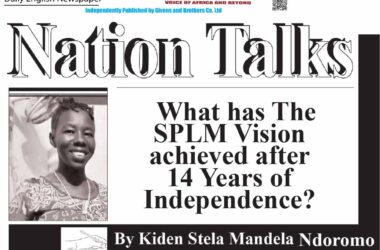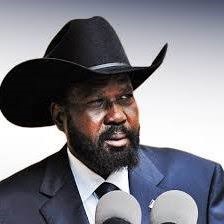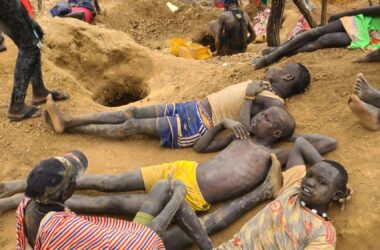By Ephraim Modi Duku Sokiri
Central Equatoria State adhoc committee investigating the extensive waste littering in Juba along the banks of the River Nile has on Tuesday, submitted its preliminary report to Governor.
Acting Chairperson of the committee for Physical Infrastructure, who is also the Deputy Mayor of Juba City Council, Thiik Thiik Mayardit, presented the report to the state governor.
He applauded some of the facilities for properly managing wastes both solid and liquid in the premises.
Thiik also recommended that all elements involved in the activities to be revoked.
The Ad-hoc committee “directs for immediate closure of the poorly managed facilities in terms of poor management of wastes and littering all over the compound and drained of River Nile,” it stated.
It also resolved that all companies and other entities should observe safety on the Nile.
“Redirect hoteliers and other companies operating along the Nile to put correctional environment measures before the final which shall be submitted to the council of ministers sitting for further scrutiny before its operationalization”
The Deputy Mayor emphasized that it is the obligation of everybody to ensure the safety of the environment for the public to live in.
“It is not the responsibility of one institution; it is the responsibility of each and every institution or every person in the Republic of South Sudan,” he said.
The Undersecretary at the National Ministry of Environment and Forestry, Dr. Joseph Africano Bartel said that two premises deserve an immediate action upon their waste management.
“I am not going to mention their names which will be taken care of immediately because of the pollution that they are causing and I think we will work together to ensure that people in the whole of South Sudan be given a safe environment for us not to fall sick from what we consume like the water and food,” he said.
Mr. Bartel stated the city council need to advance into proper waste management system in the city.
“The important thing is to develop a good waste management system in town and even liquid waste management and even chemical and medical waste. And I think for now, the responsibility lies in the hands of the city council,” he added.
The state government reiterated efforts to collaborate with the national ministry of environment and forestry on matters of national importance about safety of the surrounding.
The committee further appealed to the general public to uphold to all speculative and concrete measures to reserve the atmosphere at all habits potential.
According to the World Health Organization (WHO), South Sudan experiences a wide variety of environmental problems, including soil degradation due to widespread deforestation with consequent loss of biodiversity and wildlife habitats, pollution of rivers and the environmental due to oil drilling in the wetlands, over-exploitation of fisheries and conflicts over diminishing resources such as rangelands and water sources for livestock.
There has been an increase in environment-related diseases such as malaria, typhoid and watery diarrheal diseases in South Sudan, a situation, largely due to widespread of water contamination by urban surface runoff and poor environmental sanitation.
This is the result of inadequate disposal of both solid and liquid wastes on open ground.




